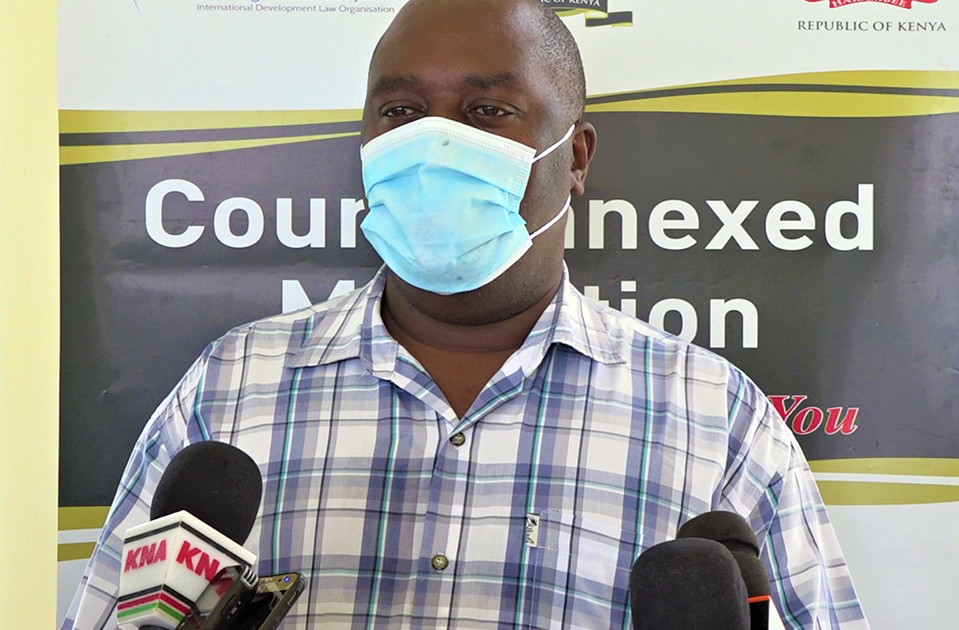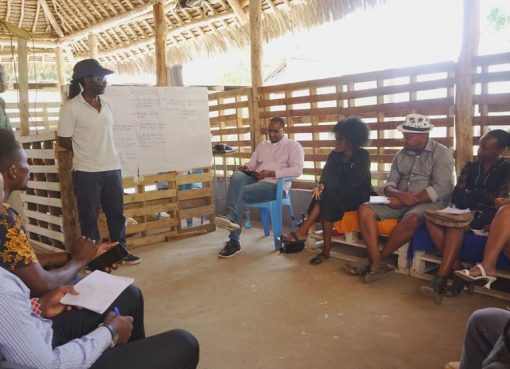The ever-increasing backlog of cases within the justice system could soon be a thing of the past following the training of more than 2,800 professional mediators in the country.
The president of the Mediation Training Institute, East Africa, Mr. James Mang’erere said the professional mediators would handle court-annexed mediation for litigants wishing to employ alternative dispute resolution mechanism as opposed to going through the conventional judicial process.
Mr. Mang’erere says professional mediation training for 42 judicial officers, court clerks, advocates and members of the Malindi High Court Users Committee (CUC) among them representatives of the civil society and Kilifi County Government officials has been conducted.
The training by mediation training institute in partnership with the Judiciary and the International Law Development Organization (ILDO) attracted 42 participants who are set to be accredited into the Institute of Chartered Mediators and Conciliators of Kenya.
“Already 2,800 mediators have graduated from the programmes and are certified to handle cases in mediation,” Mr. Mang’erere said, adding that upon graduation, the 42 participants would, apart from serving in the court annexed mediation programme, be certified as international mediators as this is certified by the International Mediation Institute Netherlands and the Singapore International Mediation Institute.
“Members who qualify here directly become members of the Institute of Chartered Mediators and Conciliators of Kenya,” said Mr. Mang’erere.
He said court annexed mediation was more time saving, less costly and offered a permanent solution to societal problems since in mediation, parties amicably resolve their disputes with the assistance of a third party called a mediator.
“Mediation is a form of alternative dispute resolution processes where a third party comes to assist those negotiating so that they can come up with acceptable solutions to their dispute,” he said.
Mr. Mangerere noted that mediation was fast and more effective than the conventional judicial system as it handles emotions and restores relationships between disputing parties as opposed to the latter, which he said leaves emotional wounds unhealed.
“The court process is more costly and takes too long to have matters resolved, especially now that there is a backlog of

cases in court. We have so many cases and very few judges. Mediation is fast, less costly and it restores relationships,” he said.
He said Kenya had only about 250 judges handling thousands of cases, some of which should not even have found their way to court and called for screening of cases before they are formally filed in court.
“In other jurisdictions, before a matter goes to court, usually you have to prove to the court you had actually attempted mediation only then can the court allow you to file a case and that’s what we also intent to do in Kenya,” he said.
He said that matters like medical negligence, family and insurance disputes could easily be solved through mediation and should never find their way to courts and tribunals for arbitration.
Mrs. Shillah Mugambi, an advocate and a certified court annex mediator said the implementation stage of the programme in the North Coast region was to be rolled out in June but judicial officers were to be trained first, hence the delay.
She said cases going through court annexed mediation get resolved within 60 days as opposed to those going to the judicial system, some of which take as long as 20 years to resolve and urged Kenyans to take the mediation way in resolving disputes.
She said under the court annexed mediation project, agreements reached at during the mediation process are filed in court and are legally binding.
She explained that parties in dispute do not pay a penny while handling their cases through mediation as the mediators and lawyers are paid by the Judiciary.
A Malindi-based advocate, Mr. Tukero ole Kina said that 98 percent of cases that are filed in court every year are never resolved, hence the need to go the mediation way.
Malindi Resident Magistrate, Ms Olga Juma Onalo said that despite the judiciary employing judges and magistrates on a yearly basis, the backlog of cases was not being solved hence the need for alternative dispute resolution mechanism and mediation.
“In mediation, litigants get satisfied with the outcomes unlike in court where we deliver rulings that are challenged by the parties in higher courts. Only those cases that pass through the screening should find themselves to court and the rest to be taken to mediation,” she said.
By Emmanuel Masha





